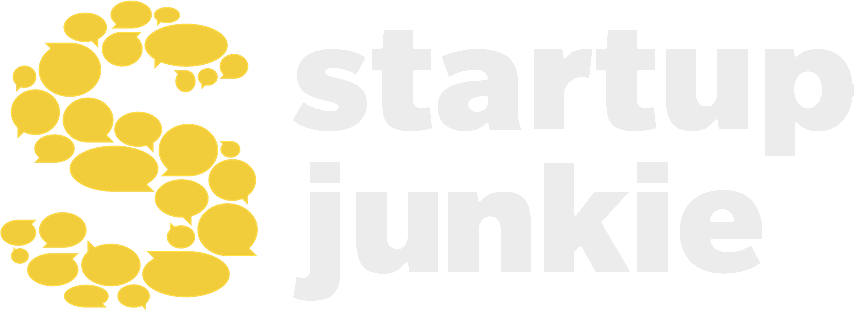Summary:
Welcome to another great episode of Startup Junkies!
On this episode, hosts Caleb Talley, Jeff Amerine, and previous Startup Junkie Michael Iseman sit down with Philip Mudd, a former CNN correspondent and counterterrorism analyst. During Philip’s extensive and accomplished career, he was a valuable asset to the FBI, CIA, and the American nation as a whole and received numerous CIA awards for his expertise and diligence. Philip is also the author of three distinguished publications and is a member of multiple prestigious associations. Throughout this episode, Philip shares insight on how to present information to your boss (in his case, President George W. Bush), how to successfully navigate chaos, and why you need to have a “call mom” sentence for any project.
Show Notes:
(1:03) Introduction to Philip
(1:58) From English Major to Senior Executive
(4:29) Leadership Basics
(8:34) Decision Advantage
(16:08) Addressing Vulnerabilities
(19:00) Navigating Crises
(28:00) Taking Responsibility When Things Go Wrong
(31:12) Hiring People More Experienced than You
(39:24) Voicing your Opinion to a Worldwide Audience
(44:44) Protecting Data
(48:51) Cyberattacks during Times of War
(55:14) Geopolitical Business Consequences
(1:06:50) Advice to Younger Self
Links:
Quotes:
“There’s a couple basics you have to think about. One’s how to get people better. Mediocre mission, great people, you can win. Great mission, mediocre people, you can’t win.” – Philip Mudd, (4:51)
“I’ll never forget it, the difference between presenting what you know and presenting what the decision maker needs to know based on determining what the decision is.” – Philip Mudd, (13:53)
“We have a responsibility not only to customers, but to families. Let’s talk about how we ensure that today we work through this as opposed to man this is a rough day. Don’t do that. The workforce will tense up and tense means worse decision making.” – Philip Mudd, (24:27)
“I think you have to take a step back and say, ‘I am not the keeper of knowledge. I am the keeper of the questions.’ Questions result from judgment, experience, exposure, and perspective. So some people around the table might have knowledge that I don’t have.” – Philip Mudd, (31:31)
A Conversation with Philip Mudd, Former CNN Correspondent and Counterterrorism Analyst
On this episode, hosts Caleb Talley, Jeff Amerine, and previous Startup Junkie Michael Iseman sit down with Philip Mudd, a former CNN correspondent and counterterrorism analyst. During Philip’s extensive and accomplished career, he was a valuable asset to the FBI, CIA, and the American nation as a whole and received numerous CIA awards for his expertise and diligence. Philip is also the author of three distinguished publications and is a member of multiple prestigious associations. Throughout this episode, Philip shares insight on how to present information to your boss (in his case, President George W. Bush), how to successfully navigate chaos, and why you need to have a “call mom” sentence for any project.
Actions of Successful Leaders
When asked what lessons he shares with other leaders, Philip provided examples: he teaches them how to find capable individuals and reminds them that they can’t do five things at once. No matter how big or small a task is, if talented individuals work towards completing it, they will most likely be successful. And any conversation with an individual or a team is an opportunity for them to get better or worse. Philip asserts that if you can’t call your mom and explain in one sentence what you do and why then there’s still room for development.
“There’s a couple basics you have to think about. One’s how to get people better. Mediocre mission, great people, you can win. Great mission, mediocre people, you can’t win.” – Philip Mudd, (4:51)
Moreover, delegating tasks to team members allows for a more focused approach. When everyone is intent on completing their singular objectives and improving themselves, the combined outcome of the team’s efforts will improve. Philip advises leaders to think backward, meaning they shouldn’t be assessing their current position and questioning what they need to do day by day to get better. They should instead look at where they want to be in a year and ask what they should be doing month by month to ensure they get there.
Remaining Calm under Pressure
During times of crisis, it’s imperative as a leader that when situations become hotter, they become cooler because if they reflect tension, that’s not leadership. Good leaders absorb stress, and bad leaders resonate stress. Leaders cannot operate effectively in a crisis if they themselves don’t have clarity. Ideally, the team around you is never able to sense instability.
“We have a responsibility not only to customers, but to families. Let’s talk about how we ensure that today we work through this as opposed to man this is a rough day. Don’t do that. The workforce will tense up and tense means worse decision making.” – Philip Mudd, (24:27)
Furthermore, leaders shouldn’t look in the mirror and think they’re so important they cannot be replaced. However, this awareness should not come with a fear of making mistakes. Everyone makes mistakes. The difference between good leaders and bad leaders is that good leaders accept responsibility when things go wrong while bad leaders blame others. Playing the blame game during adverse times is a quick way to destroy camaraderie. Whereas when leaders take ownership, it shows they are willing to shoulder the burden and offer support.
Connect with Us!
Do you consider yourself a startup junkie? Join the conversation by following us on Instagram, Facebook, and Twitter! Startup Junkie wants to come alongside these entrepreneurs every step of the way. Want to learn more about our services?
